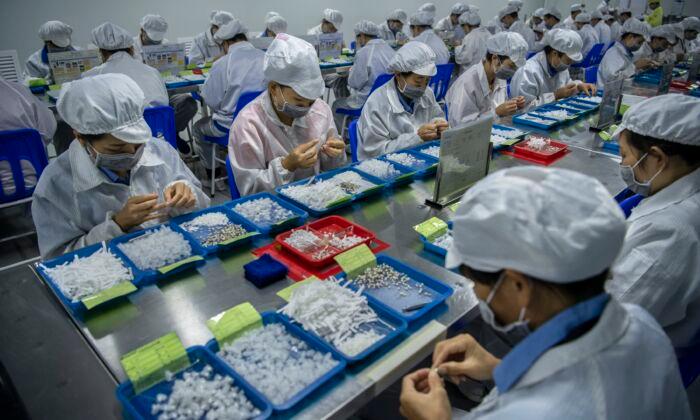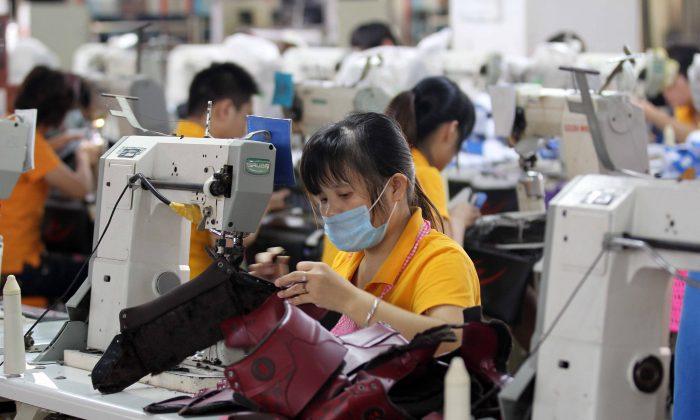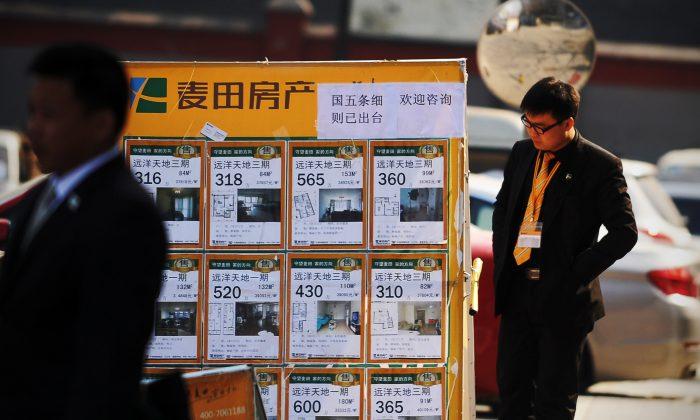For years, economists have known that China is sitting on a dangerous debt bomb. A well-known Hong Kong economist, Larry Lang, has recently taken it one step further, claiming that the fuse has now been lit, and it’s only a matter of time before everything goes “bang.”
At a March 16 economic summit in China, Lang said that a banking crisis has already begun, and that it will lead to a full-blown economic crisis before too long.
Lang had mostly made that point last November, noting that a banking crisis is one of the major dangers China’s economy faces, along with overcapacity and inflation, according to the Lanzhou Morning Post.
Lang said at the recent summit that the onset of China’s current banking crisis was marked by the Bank of Communications’ stock price plummeting below book value on June 1, 2012.
The cause of the bank crisis overall is due to local governments around the country defaulting on their debts, which has happened since April of last year, in Shanghai, and Sichuan and Yunnan provinces.
China’s banking system has seen many troubles in recent years. Among the 16 listed banks, 10
have seen their stock prices going below book value, with another five coming quite close, Lang said, adding that no other country has seen such a record.
While regular banks are sinking in debt, the non-bank financial system, or shadow banking system, which includes private loans, corporate credit, and underground financing operations, are also in trouble, Lang said.
“The shadow banking system is preferred by many local businesses, real estate, and manufacturers, and has 30 trillion yuan ($4.8 trillion) worth of loans in the market,” Lang said. Frequently, because of the state’s monopoly on the banking system, private companies aren’t able to gain loans from banks – so they turn to the sometimes usurious shadow banking system.
Lang predicted that the shadow banking system will soon accumulate too much debt and become “another horrific financial crisis for China.” The authorities have admitted as much, with Xiao Gang, head of the Bank of China, in October 2012 remarking that the shadow banking system poses “tremendous risks to China’s banking and financial systems.”
Almost simultaneous with Lang’s recent dire forecast are reports from Nomura Holdings Inc. and JP Morgan. Both companies warned investors of China’s emerging financial crisis.
Nomura sounded a warning that the Chinese economy is exhibiting the same worrying symptoms that triggered the 2008 financial crisis, CNBC reported.
JP Morgan downgraded China to “underweight,” and recommended bearish bets against the country’s largest banks, citing concerns over slowing growth and inflation.
“Huge amounts of money are stuck in the real estate market, and some local financing platforms borrowed large amounts from state-owned banks,” Dr. Frank Xie, a professor in the School of Business Administration at the University of South Carolina, Aiken, told Sound of Hope radio. “Now that local governments’ revenue from land sales have dropped significantly, they cannot repay their debts. The bank loans will eventually become bad debts.”
Xie added that the banks’ debt crisis has caused their stock prices to plummet below net worth. “In effect, the banks are already insolvent,” Xie said, “In other words, many Chinese banks are dangerously close to bankruptcy.”
China will be impacted profoundly from a banking crisis—far more than developed, democratic countries—Xie said, adding that communist authorities will have no easy way out.
The immediate consequence of bankruptcy, he said, would be that people won’t be able to get their deposits back. “If the regime uses forces to prevent people from drawing cash, Chinese people are likely to fight back” and possibly even overthrow the regime, he said. On the other hand, if the regime tries to print money to solve the problem, “it will escalate the already high inflation.” That will cause further economic dislocation, and itself may trigger civil unrest.
Translation by Michelle Yu. Research by Jane Lin. Written in English by Matthew Robertson.



